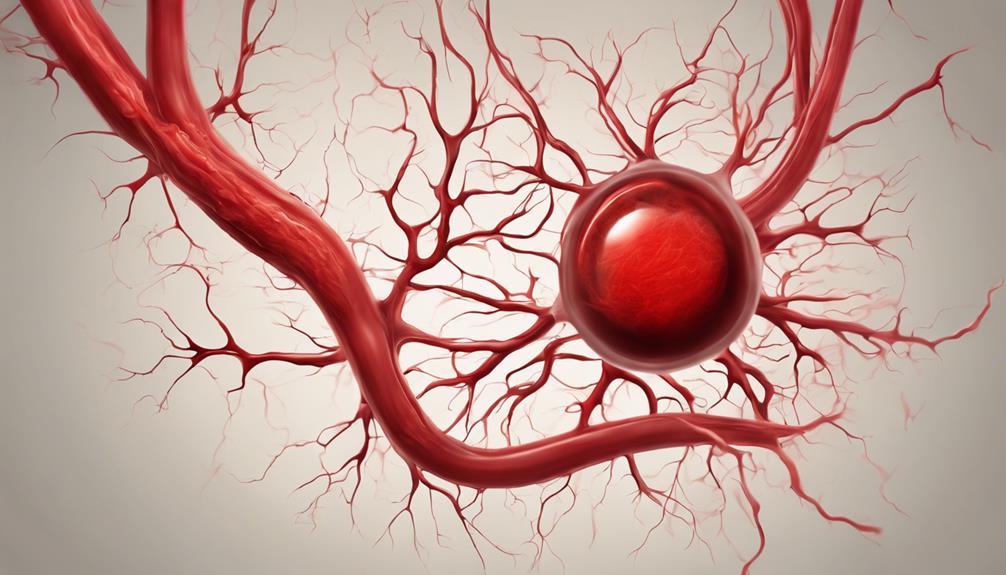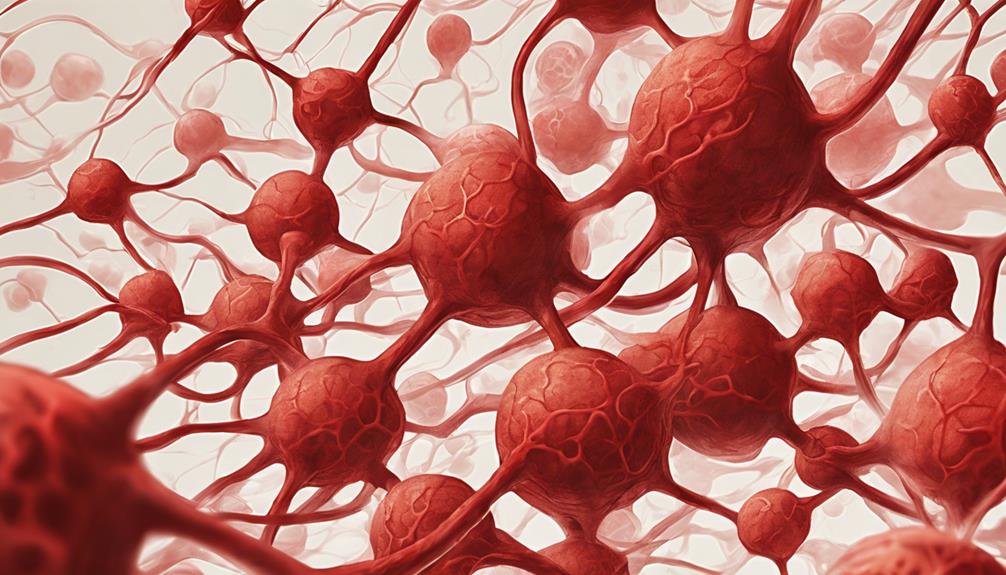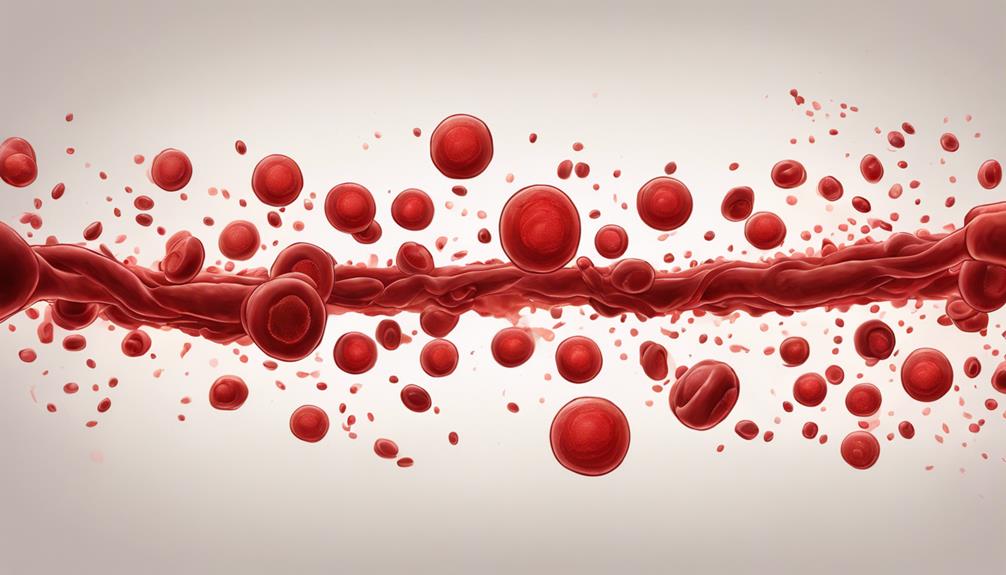Summary
Curious about the term 'erythrocytic'? These are red blood cells. They carry oxygen from the lungs to the rest of the body. In humans, these cells do not have a nucleus. Their main job is to transport oxygen and carbon dioxide. They play a vital role in keeping you energetic! If you want to find out more about how these tiny cells affect your well-being, continue exploring the fascinating world of erythrocytes.
Overview of the erythrocyte definition

If you are interested in the meaning of erythrocytic, let us delve into an overview to shed light on its definition. Erythrocytic refers to something that is related to the red blood cells. These cells are essential components of your blood, responsible for carrying oxygen from your lungs To all parts of your body. The term 'erythrocytic' comes from the Greek words 'erythros,' meaning red, and 'kytos,' meaning cell.
Erythrocyte cells are unique in that they do not contain a core In humans. This absence of a core allows more space to carry hemoglobin, the protein that binds to oxygen and gives blood its red color. The primary function of erythrocyte cells is to transport oxygen and carbon dioxide throughout the body. To do this, they travel through the circulatory system, passing through arteries, capillaries and veins.
Understanding the definition of erythrocytic provides insight into the important role these cells play in maintaining your overall health. By efficiently transporting oxygen, erythrocyte cells make sure your body's tissues and organs get the oxygen they need to function properly.
Functions of erythrocyte cells
Erythrocyte cells play a vital role in transporting oxygen and carbon dioxide throughout your body. These specialized cells, also known as red blood cells, contain hemoglobin, a protein that binds to oxygen in the lungs and releases it to tissues that need it. As blood circulates, erythrocytes collect oxygen from the lungs and transport it to every cell in your body. At the same time, they collect carbon dioxide, a waste product of metabolism, and transport it back to the lungs for exhalation.
In addition to their oxygen transport capacity, the erythrocyte cells are flexible and can pass through tiny blood vessels. This flexibility allows them to pass through the intricate network of blood vessels and reach even the most remote tissues of your body. In addition, their shape biconcave provides more surface area for the gas exchange, improving their efficiency in transporting oxygen and removing carbon dioxide.
Importance in oxygen transport

Fundamental to sustaining life, the function of the erythrocyte cells at oxygen transport Is essential for the functioning of your body. These extraordinary cells, also known as red blood cells, are responsible for bringing oxygen from the lungs to every tissue and organ in your body. Hemoglobin, a protein abundant in erythrocytes, binds to oxygen molecules in the lungs and releases them where needed, ensuring that all your cells have the oxygen required for the power generation.
As your heart pumps oxygen-rich blood throughout the body, erythrocytes play an important role in this process. They travel through arteries and capillaries, delivering oxygen and collecting carbon dioxide, a waste product of metabolism, to be eliminated through the lungs. Without this intricate system, your body would not receive the oxygen it needs to survive, leading to fatigue, organ damage, and eventually death.
Erythrocyte disorders and implications
Among the various medical conditions that can affect the function of the red blood cells, erythrocyte disorders have important implications for your overall health and well-being. These disorders include a variety of conditions that affect the production, structure, or durability of red blood cells, causing problems in oxygen transport and overall physiological function.
Conditions such as theanemia, the thalassemia and the sickle cell disease are examples of erythrocyte disorders that can have major consequences if left untreated. Anemia, characterized by a lack of healthy red blood cells, can cause fatigue, weakness, and shortness of breath. Thalassemia, an inherited blood disorder, affects hemoglobin production and can lead to anemia and other complications. Sickle cell disease causes red blood cells to become stiff and sickle-shaped, hindering their ability to flow smoothly through blood vessels and deliver oxygen effectively.
Managing erythrocyte disorders requires careful monitoring, appropriate medical treatment, and lifestyle adjustments to optimize your red blood cell function and overall health. Proper diagnosis and treatment of these conditions are essential to maintain a good quality of life and prevent possible complications.
Maintaining the health of erythrocytes

To promote excellent red blood cell function and overall health, it is important to prioritize maintaining erythrocyte health through a balanced diet and regular physical activity. Red blood cells play a significant role in oxygen transport throughout the body, so keeping them healthy is essential for well-being.
Include iron-rich foods such as lean meats, spinach and beans in your diet to support improved red blood cell production. Vitamin C promotes iron absorption, so pair iron-rich foods with citrus fruits or peppers to maximize the benefits. In addition, foods rich in folate, such as lentils and asparagus, help with red blood cell production.
Regular exercise also plays an important role in maintaining erythrocyte health. Physical activity promotes good circulation, ensuring that red blood cells efficiently transport oxygen to tissues throughout the body. Try to engage in at least 150 minutes of moderate aerobic activity per week to support red blood cell function and overall health. By prioritizing a balanced diet and regular exercise, you can help maintain optimal red blood cell health and support your body's crucial functions.
Frequently asked questions
How do erythrocytes differ from other blood cells?
So how do the erythrocytes From other blood cells? Well, erythrocytes, also known as red blood cells, are distinguished by their unique form and function. Unlike other blood cells, erythrocytes do not have a nucleus, which allows them to efficiently transport oxygen through your body. This specialized design distinguishes them from the white blood cells and from platelets, which have different roles in maintaining your overall health.
Can erythrocytes be used for diagnostic purposes?
Yes, the erythrocytes can be used for diagnostic purposes. They play an important role in transporting oxygen throughout the body, making them valuable in assessing various health conditions. By analyzing the size, shape and quantity of erythrocytes, health care providers can gain valuable information about potential problems such as anemia or infection. So the next time you take a blood test, remember that those little red blood cells are working hard to help diagnose your health!
What factors may influence erythrocyte production?
As for factors that can affect erythrocyte production, various elements play a significant role. Your diet, hormone balance, and even altitude can influence how your body produces these essential red blood cells. Making sure you get enough iron, vitamin B12 and folic acid is critical for healthy erythrocyte production. In addition, chronic diseases such as kidney disease or bone marrow disorders can affect the process. It's a fascinating web of factors!
Are there cultural beliefs or myths associated with erythrocytes?
In some cultures, beliefs or myths concerning the erythrocytes can vary. People might associate these blood cells with vitality, life force, or even with a spiritual significance. Understanding these cultural perspectives can offer insight into how different societies view health and well-being. By investigating these beliefs, it is possible to gain a greater understanding of the different ways in which erythrocytes are perceived and valued through different traditions.
Can lifestyle choices influence erythrocyte function?
Do healthy lifestyle choices can actually affect the function of your erythrocytes. Factors such as diet, exercise and hydration play a significant role in maintaining optimal red blood cell function. Consuming foods rich in iron, staying active to promote circulation and maintaining adequate hydration all support erythrocyte health. In contrast, unhealthy lifestyle habits such as smoking, excessive alcohol consumption and a sedentary lifestyle can adversely affect your red blood cells' ability to transport oxygen efficiently.
